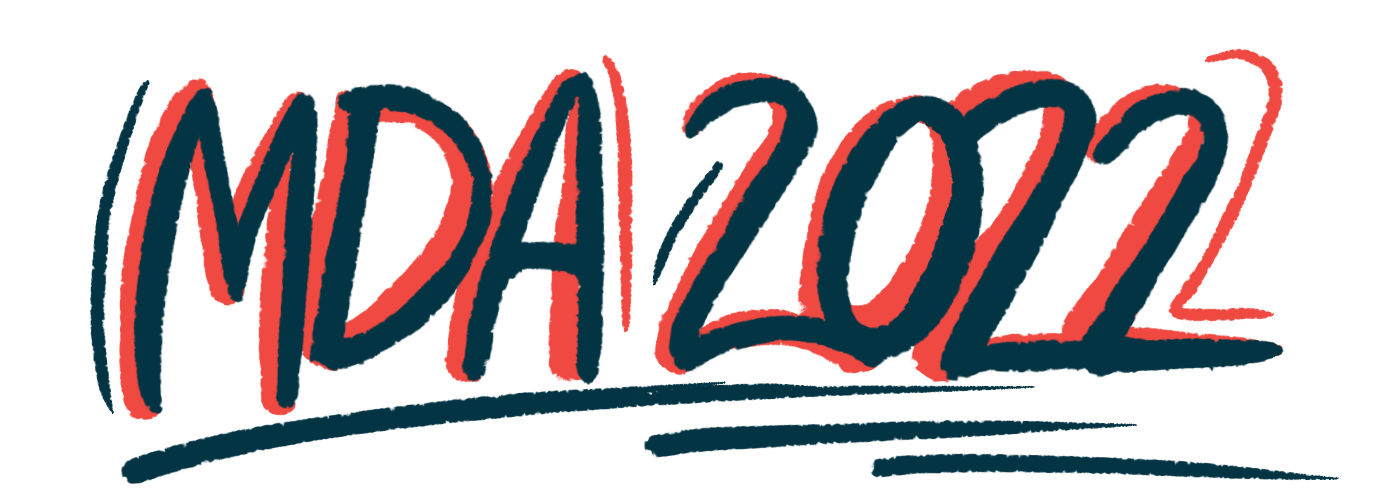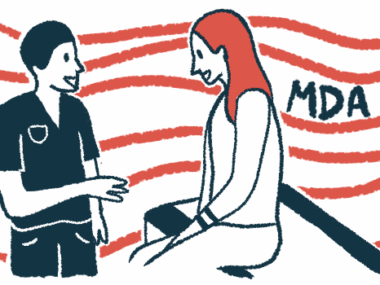#MDA2022 – BBP-418 Improves Walking Ability in LGMD2i Patients
Written by |

Treatment with BBP-418 improved walking ability among people with limb-girdle muscular dystrophy type 2i (LGMD2i) in a Phase 2 clinical trial, early data show.
“To date, people with LGMD2i have no approved disease-modifying treatment options. Many of these patients see their quality of life deteriorate rapidly and lose their functional independence, including their ability to walk,” Douglas Sproule, MD, one of the study investigators, said in a press release.
“Our preliminary trial data holds promise for this unmet patient need as our investigational therapy is shown to be generally well-tolerated and to improve several key markers associated with a patient’s decline,” said Sproule, the chief medical officer of ML Bio Solutions, a subsidiary of BridgeBio Pharma, which is developing BBP-418.
The findings were presented at the Muscular Dystrophy Association (MDA) 2022 Annual Meeting, being held this week in Nashville, Tennessee. The poster is titled “Preliminary Results From MLB-01-003: An Open Label Phase 3 Study of BBP-418 in Patients with Limb Girdle Muscular Dystrophy Type 2i.”
The protein alpha-dystroglycan normally acts like a “shock absorber” in muscle cells, helping to cushion them against damage during movement. But to function correctly, alpha-dystroglycan needs to be decorated with a number of specialized sugar molecules, a process called glycosylation.
LGMD2i, also called LGMDR9, is a type of muscular dystrophy caused by mutations in a gene called FKRP that’s needed to add sugar molecules to alpha-dystroglycan. Such mutations ultimately result in too little sugar on alpha-dystroglycan, making the protein unable to function correctly.
BBP-418, also known as ribitol, is an oral prodrug — a precursor molecule — that gets converted, inside the body, into a sugar component of alpha-dystroglycan. The therapy is designed to help increase glycosylation of alpha-dystroglycan in the body.
ML Bio is sponsoring a Phase 2 clinical trial (NCT04800874) that’s evaluating the experimental therapy’s safety and effectiveness in people with LGMD2i.
The trial enrolled 14 participants, both those able to walk and those non-ambulatory, with LGMD2i. In the first part of the study, the participants were divided into three groups and given one of three BBP-418 dosing regimens: 6 g per day, 6 g twice per day, or 12 g twice per day, for three months. Then, all participants were given 12 g twice daily (with adjustments for lower-weight participants) for three more months.
Results showed that, after 90 days of treatment, all three dosing regimens of BBP-418 significantly increased ratios of glycosylated alpha-dystroglycan, by 43% on average.
The treatment also significantly lowered levels of creatine kinase, a marker of muscle damage. After three months, average levels decreased by 70% in all groups. In the first two groups where data were available, levels were reduced by 77% on average after six months (180 days).
Treatment with BBP-418 also led to a marked decrease — an improvement for patients — in times on the 10-meter walk test at all tested doses. This test, which measures walking speed in meters per second over a short duration, helps assess mobility and gait.
In the groups with available data, the improvements persisted out to 180 days, or about six months. Notably, a natural history study conducted with the same patients showed a decline of 0.12 meters per second over the six months before enrollment in this trial.
“The positive results from the Phase 2 study exceed expectations and are incredibly exciting as they demonstrate consistent improvements in key markers of muscle function and support further study,” said Amy Harper, MD, the trial’s primary investigator a professor at Virginia Commonwealth University.
Safety data were generally positive in the study, with no serious side effects related to treatment reported, and no patients discontinuing the trial. There were eight documented side effects deemed probably or possibly related to BBP-418 treatment, which included diarrhea, nausea, stomachache, and indigestion.
In a separate poster at the MDA Conference, scientists at ML Bio presented data from a Phase 1 clinical study that evaluated the safety and pharmacological properties of a range of doses of BBP-418 in 85 healthy volunteers. The poster was titled, “MLB-01-002: A Phase 1 Randomized, Blinded, Placebo-controlled Study of the Safety, Tolerability, and PK of BBP-418 (Ribitol) in Healthy Subjects.”
These results showed the therapy to be generally well-tolerated, with no study discontinuations or serious side effects reported. Most of the adverse events that were considered to be probably or possibly a side effect of the medication were digestion-related (e.g., nausea and diarrhea).
Pharmacological data from the study were generally in line with expectations; of note, data indicated no difference in exposure to the medication when taken with or without food.
According to BridgeBio, “The Phase 1 study demonstrated broad tolerability across a wide range of dosing, including doses beyond expected therapeutic range. No dose limiting toxicity was observed.”
The company is planning to discuss with regulatory authorities potential pathways toward approval for BBP-418. Additionally, BridgeBio intends to launch a Phase 3 clinical trial of BBP-418 later this year.
“If the development program is successful, BridgeBio believes BBP-418 could be the first approved therapy for the treatment of patients with LGMD2i,” the company said.
Note: The Muscular Dystrophy News Today team is providing coverage of the 2022 MDA Clinical and Scientific Conference March 13–16. Go here to see the latest stories from the conference.







